Implants
Implants
A dental implant is an artificial root placed in the jaw bone where the missing tooth used to be. Some months after placement, the implant is uncovered and used as an anchor to support the replacement tooth.
The use of dental implants
If you are missing one or more teeth and you would like to restore your ability to smile, speak and eat with confidence, then dental implants can help you. Maybe your dentures don’t fit as securely or comfortably as they once did. Perhaps you hide your smile because of spaces from missing teeth. Or have you lost teeth because of advanced gum disease. Further information about “Ankylos” the dental implant system used by Katy Turner may be found at “Ankylos – Dentsply Implants”.
If any of these situations keep you from feeling good about yourself, dental implants may be a solution for you.
What are the benefits of dental implants?
They provide an alternative to dentures that wobbles, clicks or causes pain. There are a variety of methods of using implants to secure or replace dentures. You can enjoy your favourite foods again, and smile and speak with confidence.
If back teeth are missing the usual answer is to wear a small removable denture. These can be awkward and many people find them difficult to manage. An implant can allow your dentist to provide you with fixed teeth. This will make you feel as though you have your own natural teeth back again.
A single tooth may be lost as a result of an injury, and can be replaced with an implant, with the great advantage that neighbouring teeth are not involved.
Are implants safe and how long will they last?
Implants are made from materials accepted by the body. Present day implants, based on scientific evidence, has shown a very high success rate. Like natural teeth they will last as long as they are well cared for.
Does it hurt?
Only a minor operation is needed to place the Implant. This is usually carried out under a local anaesthetic, and sometimes with sedation as well. After the operation most patients report minor discomfort, similar to that associated with a simple extraction. This is easily controlled with analgaesic tablets.
How long does the treatment take?
This will depend upon the nature of the bone into which the implant is placed, and on the design of the replacement teeth. Sometimes temporary teeth are necessary to apply only gentle pressure to the jaw bone before the final teeth are fitted. Treatment in most cases can be completed in 6 to 9 months.
Do I have to go without teeth?
No. You can use your existing replacement teeth as soon as they can be worn comfortably. These can serve (with some modification if necessary) until your new teeth are ready.
How do I know Implants are right for me?
If you are in good health, over the age of 18 and have enough bone to support an implant, you are probably suitable. You will need to see a suitably trained dentist who will carry out a detailed examination. This includes a check of your medical history and an examination of your mouth and jaw. X-rays and models will be needed. The dentist can then advise you more fully about your suitability for implants.
Is the treatment expensive?
The cost reflects the skill and training required for successful implants. Building new teeth on to implants is comparable to conventional crowns and bridges. The expense must be evaluated against the extra quality of life that implants can produce. Since treatment depends on many variable factors in each individual case, it is not possible to offer a scale of fees. The dentist will be able to advise on the cost after the full examination and case assessment.
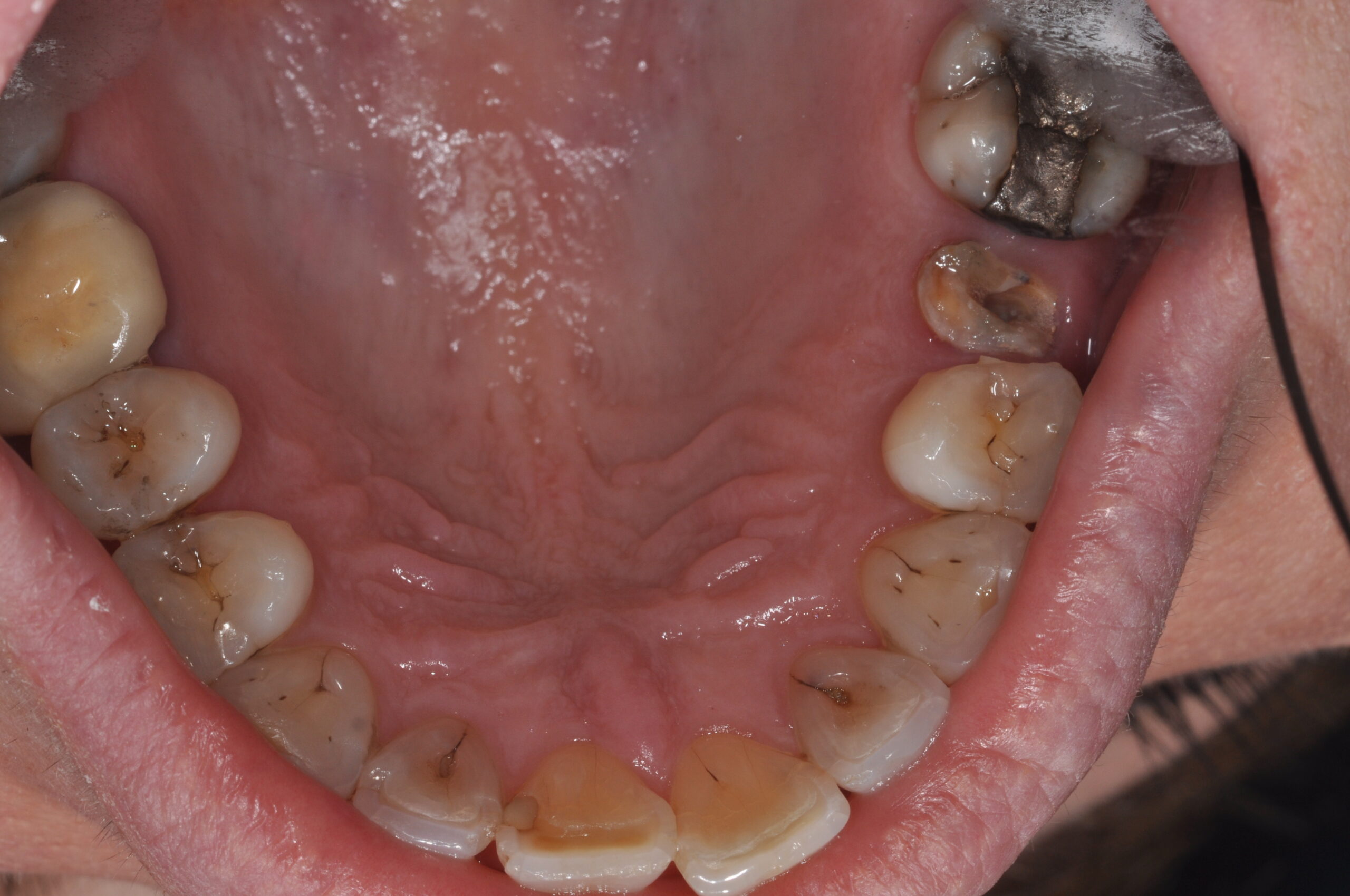
Before
Implant case - upper premolar
Pre-operative picture showing broken upper 2nd premolar
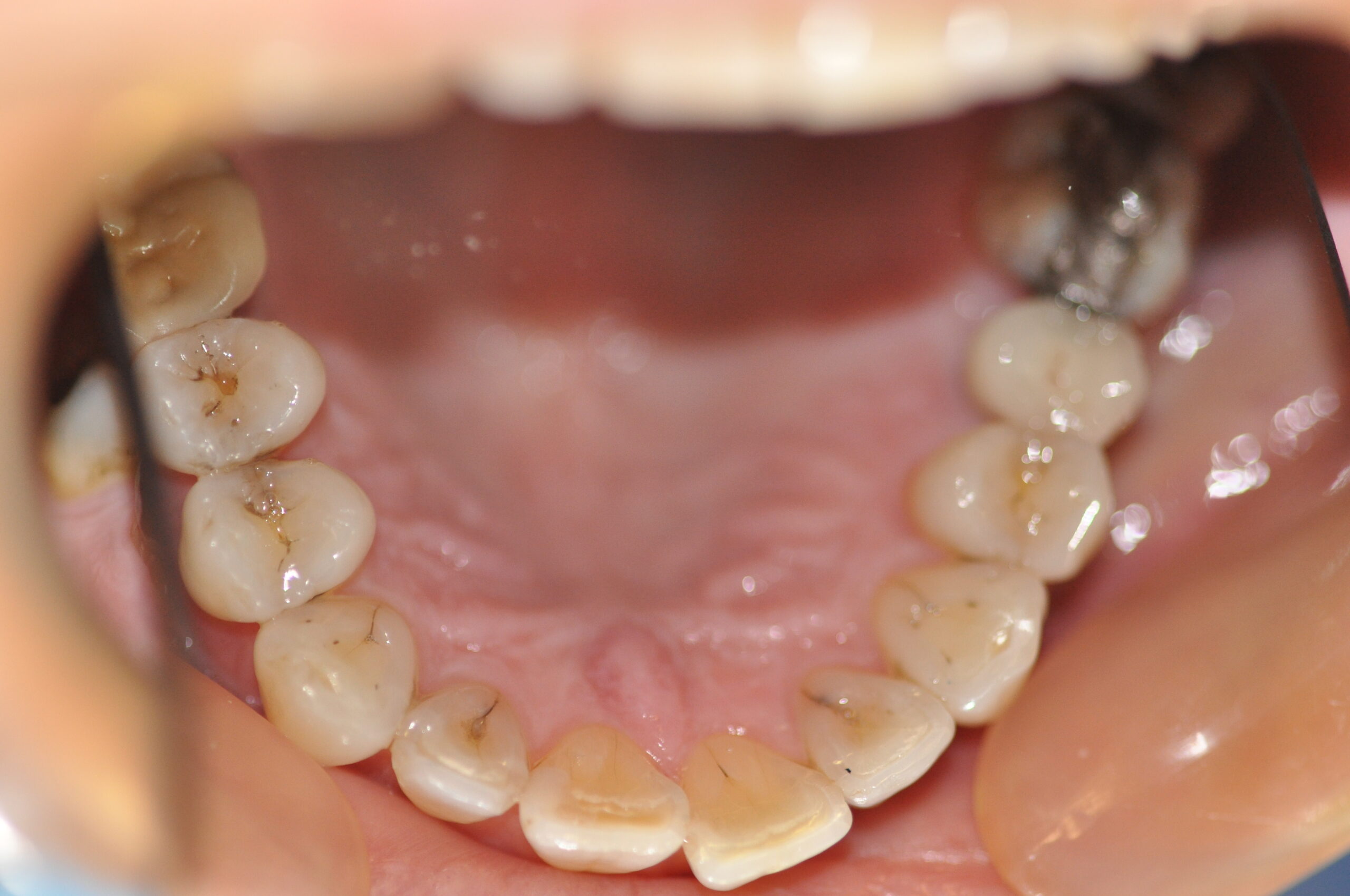
After
Implant case - upper premolar
Final picture with implant in place. Case by K. Turner
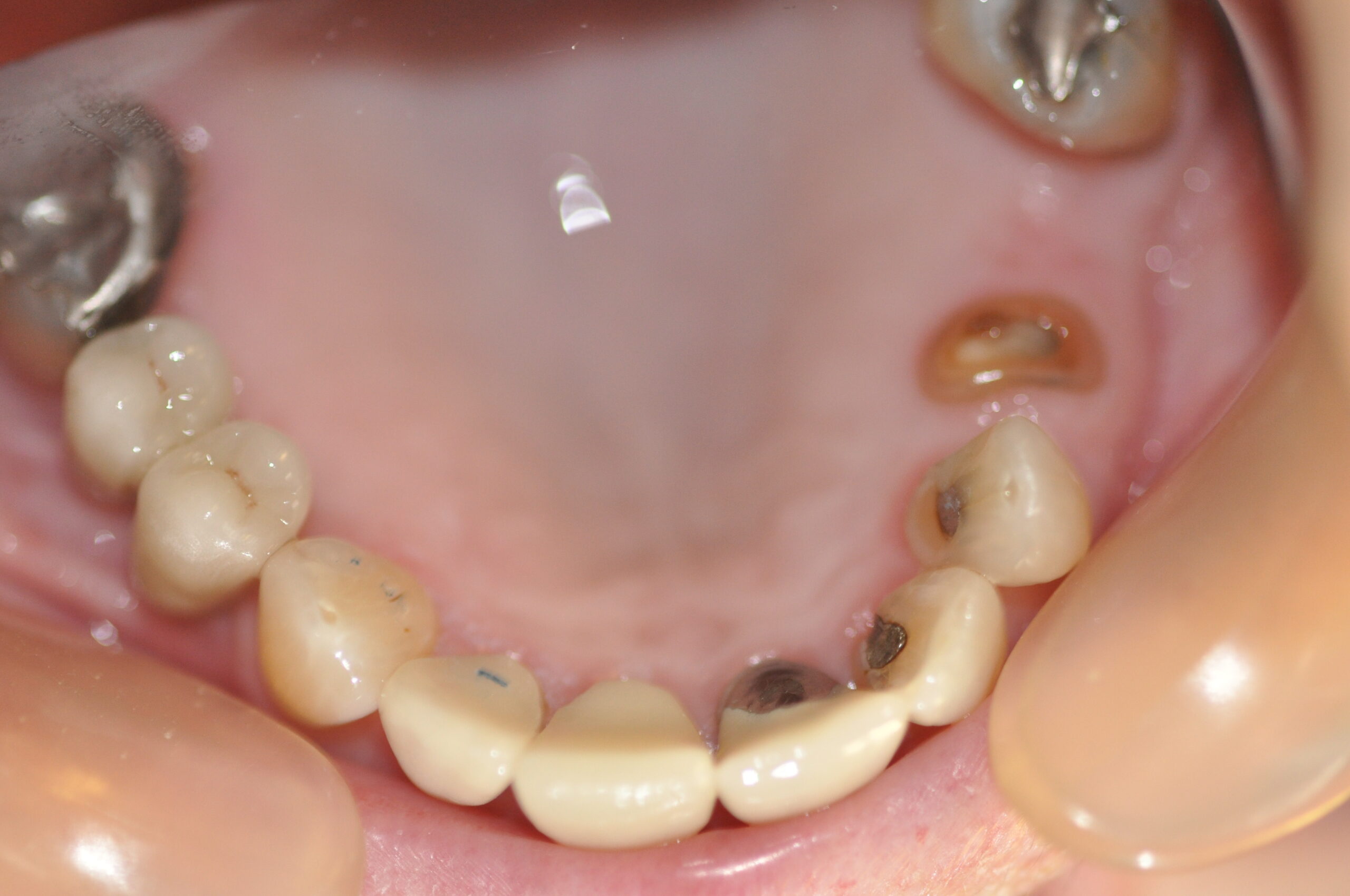
Before
Implant retained cantilever bridge - upper premolars
Pre-operative picture showing upper first premolar root in place with no second premolar present
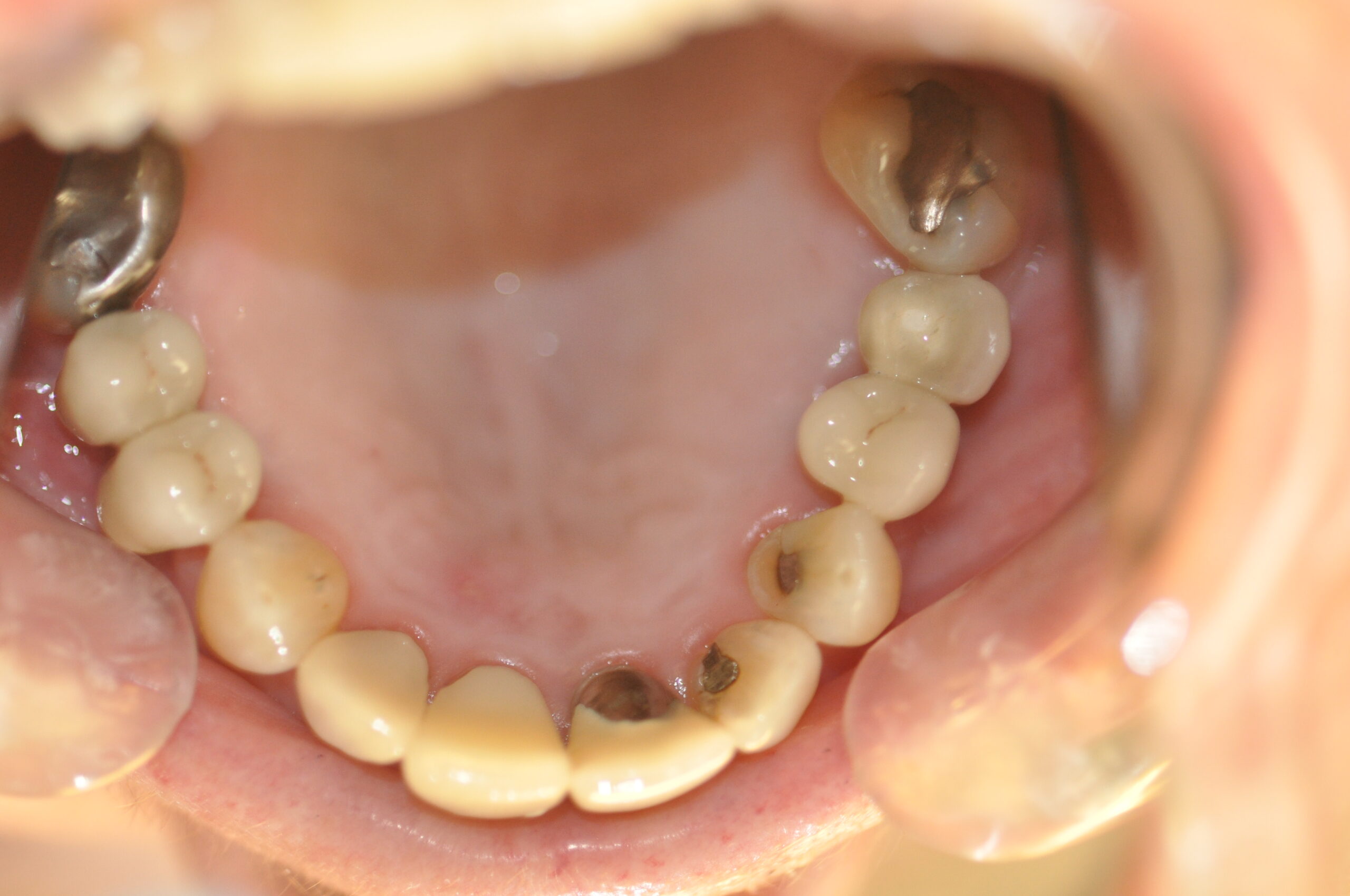
After
Implant retained cantilever bridge - upper premolars
Final picture with implant placed and a 2 unit cantilever bridge used to restore the gap.
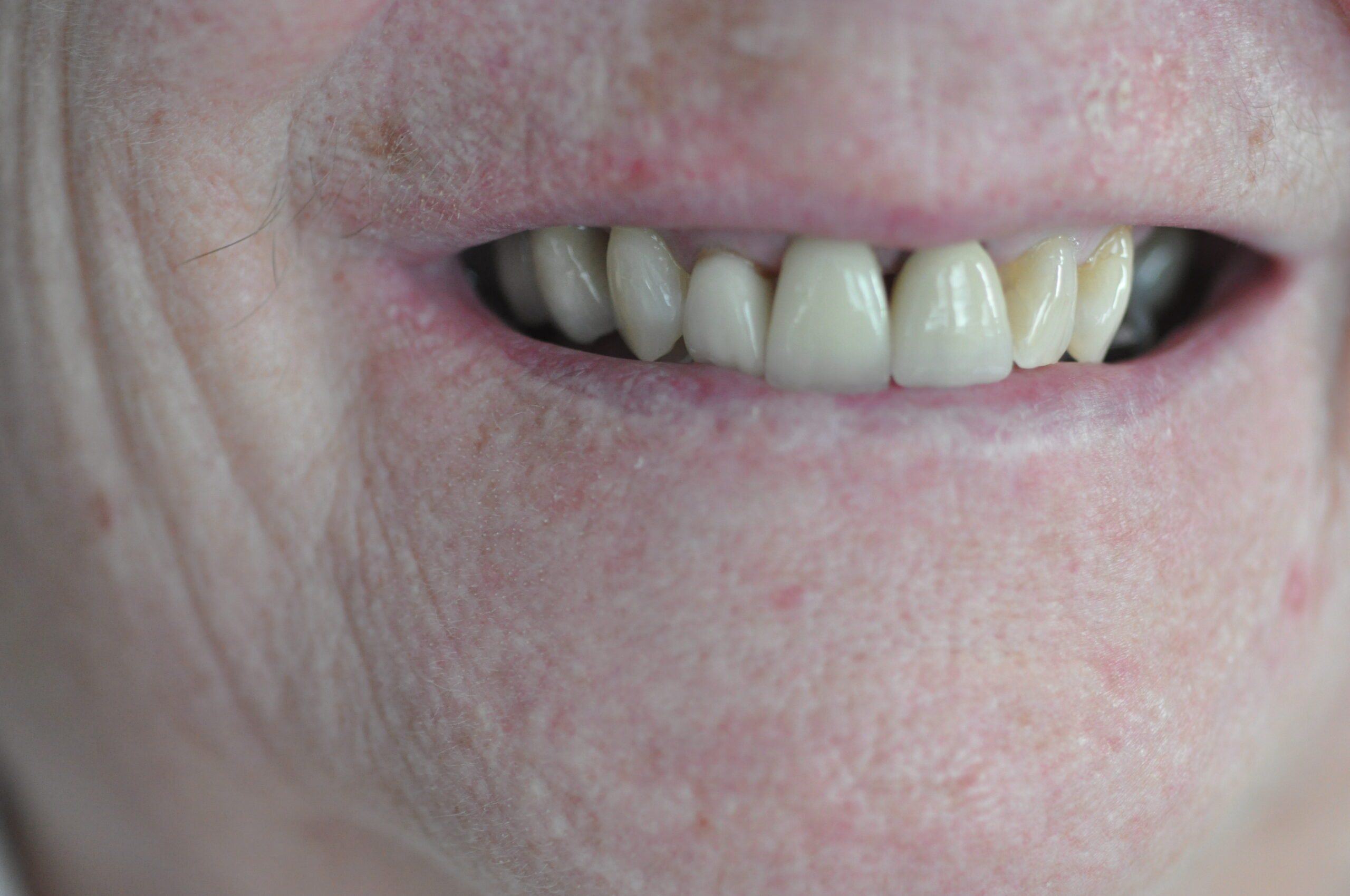
Before
Implant retained cantilever bridge - upper premolars
Pre-operative picture of the same patient from the front. On the left side beyond the canine there is a gap in the dentition which is unaesthetic
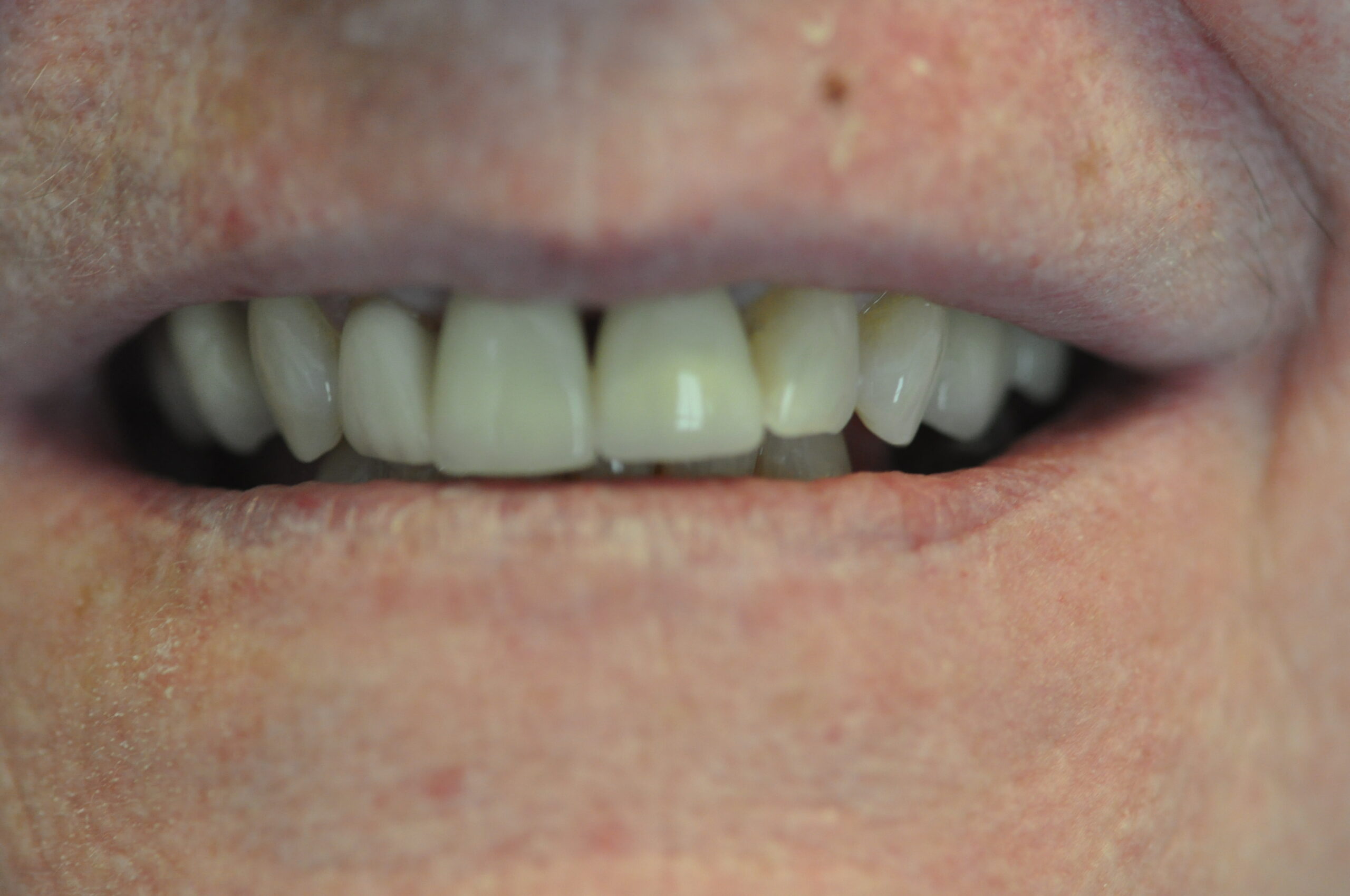
After
Implant retained cantilever bridge - upper premolars
Final picture with implant placed and a 2 unit cantilever bridge used to restore the gap. Function and aesthetics are restored. Case by K. Turner

